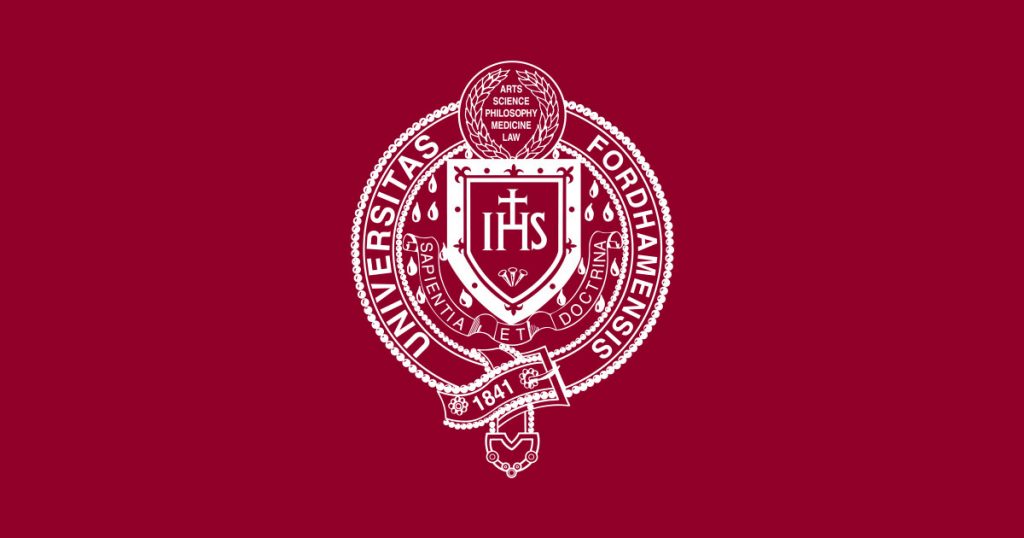Dear Members of the Fordham Community,
We are pleased to provide you with an update to the University-Sponsored Travel Policy. If you recall, back in April 2020, Fordham suspended all University-sponsored travel in order to reduce the likelihood of a Fordham traveler contracting COVID-19 and inadvertently transmitting it to others. On July 1, 2021, in light of updated guidance from the Centers for Disease Control and Prevention (CDC) and the New York State Department of Health, Fordham revised its University-Sponsored Travel Policy and relaxed its year-long suspension to allow for limited university-sponsored travel under certain conditions. With updated guidance and in consideration of evolving circumstances, Fordham is once again revising its University-sponsored Travel Policy.
Effective March 12, 2022, Fordham will permit University-sponsored travel under the following conditions:
International Travel
- Fordham may sponsor faculty, staff, and students to engage in international travel for educational purposes, research, or to fulfill professional responsibilities in the interest of the University, provided that such travel does not pose undue risk to the traveler’s health, safety or security, and sufficient University resources have been identified in cases where reimbursement for travel is expected.
- Fordham’s risk assessment for a proposed itinerary will depend on the countries that the traveler intends to visit:
- Countries for which the State Department has issued a Level-1 or Level-2 Travel Advisory would not require pre-approval other than normal budgetary review.
- Countries for which the State Department has issued a Level-3 or Level-4 Travel Advisory require more thoughtful consideration. At least ten days prior to the traveler’s critical decision date for proposed travel to a Level-3 or Level-4 country, the individual must submit an international travel request to Fordham’s International Travel Risk Assessment Committee (ITRAC). ITRAC will assess any specific risks associated with the proposed itinerary and then forward its recommendation to the traveler’s dean or vice president who will ultimately determine whether the proposed travel is pre-approved.
- Before engaging in pre-approved international travel, the traveler must be up-to-date with their Covid-19 vaccinations (and boosters when eligible) and enroll in both Fordham’s Travel Registry and the Department of State’s Smart Traveler Enrollment Program. The University will continue to monitor conditions globally and notify travelers of emerging concerns should itinerary modifications be necessary.
Domestic Travel
- Faculty, staff, and students are permitted to engage in university-sponsored domestic travel (to locations within the United States and its territories) for educational purposes, research, or to fulfill professional responsibilities, provided that sufficient University resources have been identified in cases where reimbursement for travel is expected.
- While domestic travel for the above purposes does not require pre-approval from a dean or vice president, careful consideration and good judgment should be exercised prior to planning domestic travel. The CDC has made available a helpful map to suggest what precautionary COVID-protocols are warranted on a county-by-county basis.
- Student clubs and organizations should continue to petition for domestic travel through the Office of Student Involvement for their respective campus.
Additional Considerations During the COVID-19 Pandemic
- Fordham requires that all students, faculty, and staff are up-to-date with COVID-19 vaccinations (and boosters when eligible) prior to University-sponsored travel with rare exceptions.
- Travelers need to follow all CDC guidance and site-specific regulations including masking while on planes, buses, trains, and other forms of public transportation. In addition, travelers must follow all destination-specific health-and-safety guidelines related to travel, testing, and quarantine.
- Before finalizing travel plans, one is encouraged to reflect upon the following questions:
- Given the risk level for the specific sites I plan to visit, will I put myself or anyone in my household at undue risk of potential COVID-19 infection?
- If I should contract COVID-19 while on University-sponsored travel, do I have a clear plan for how I could self-isolate and travel home safely?
- Can my anticipated travel be deferred, or can I accomplish the work using videoconferencing or other remote means?
We wish you a healthy and productive spring semester.
Sincerely,
Dennis C. Jacobs, Provost and Senior Vice President for Academic Affairs
Marco Valera, Vice President for Administration & COVID-19 Coordinator

